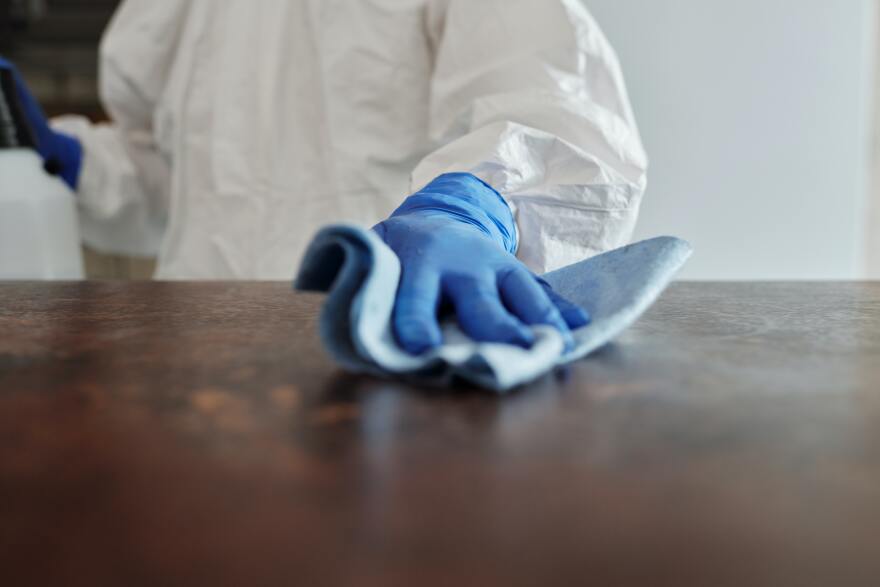ALLENTOWN, Pa. — A summer surge in coronavirus cases not only is putting people at risk to develop the disease, but to develop long COVID, officials said.
Long COVID is when a patient feels the signs and symptoms of the virus for 12 weeks or longer.
"The problem with long COVID is that it's extremely vague, so if we're looking for hard-and-fast answers, if we're looking for diagnostic criteria, this is one of the most challenging spots where we have that,” said Dr. Diana Farrell, an internal medicine physician with Lehigh Valley Health Network.
“Typically, patients will present to our office after initial COVID infection and just say, 'I'm really just not feeling myself.'"Dr. Diana Farrell, Lehigh Valley Health Network
As of April, the U.S. Centers for Disease Control reported about 5.3% of U.S. adults had long COVID.
Those with long COVID, also referred to as long haulers, feel the effects of the virus for an extended time, but the symptoms can be hard to diagnose, Farrell said.
She said that while it’s a disability under the Americans with Disabilities Act, it's hard to spot.
“Typically, patients will present to our office after initial COVID infection and just say, 'I'm really just not feeling myself,'" Farrell said.
"I feel tired, I feel winded with activity that was usually not a big issue, my heart rate jumps up when I do the smallest amount of things, and brain fog.’
"Those are pretty much the four most common symptoms that we're seeing patients present when they talk about long COVID."
Local impact
Allentown Health Director Dave Synnamon said the city is seeing more people heading to the hospital with symptoms.
Synnamon said that although a few years have passed since the pandemic first hit, without years of data, it’s hard to say when an uptick will happen or how long COVID will affect people.
"Until we kind of figure out how COVID will ebb and flow year to year, it's going to be kind of a live and learn process,” he said.
“I think this is very similar to some of the other disease processes that we've witnessed over time, like fibromyalgia and Lyme disease."Dr. Diana Farrell, Lehigh Valley Health Network
He said although the health bureau no longer does testing, it will help those who are uninsured get a COVID vaccine. He said the most important part of stopping the spread is staying home when sick.
"It's still completely acceptable to, if you have or had COVID recently, and your symptoms are on the decline, and you want to go out in public, I think it's perfectly acceptable to wear a mask to protect others,” he said.
“I think this is very similar to some of the other disease processes that we've witnessed over time, like fibromyalgia and Lyme disease," Farrell said.
“We're tasked with a similar problem here, because like those tasks, it's not easy to diagnose and symptoms are very vague. And so we start to see that this is something that's vastly underdiagnosed.”
Local impact
Farrell said patients need to advocate for themselves and report long COVID symptoms to their primary care doctor if they persist for three months or longer.
“Feeling tired, just not being able to get back to daily function the way that they used to," he said.
"And we're seeing a lot of patients looking for leave secondary to these symptoms, because they've really impacted their ability to perform, either at work or at home.”
"Since there is no one-size-fits-all when it comes to long COVID, we really need to look at what symptoms those patients are having, so that we can aim our treatment toward them."Dr. Diana Farrell, Lehigh Valley Health Network
She said the severity of the initial illness does not seem to affect whether a patient becomes a long hauler.
The condition can be treated, but treatment is based on individual symptoms.
"Since there is no one-size-fits-all when it comes to long COVID, we really need to look at what symptoms those patients are having, so that we can aim our treatment toward them,” Farrell said.
She said that in most cases, the condition is cured over time. It just takes longer than the standard two to three weeks that a typical diagnosis takes.
“If you can prevent yourself from getting COVID, your odds of getting long COVID are zero," Farrell said.
"However, we are seeing some studies that show that vaccination, even in patients who do get COVID, their incidence of long COVID is reduced.”


